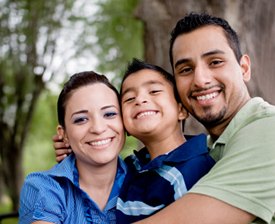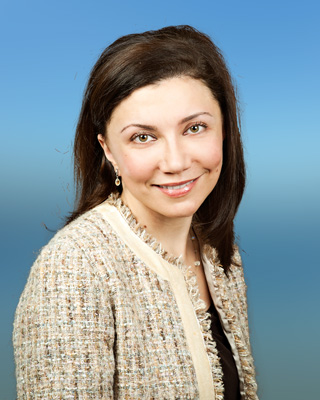Dysthymia Treatment in Woodinville, WA

Dysthymia is a long-term form of depression . People with dysthymia will have the same struggles as someone with another type of depression including loss of interest in activities, disrupted sleep patterns, low energy, and feelings of sadness.
Dysthymia can affect men, women or children and may cause others to think that people with it are complainers, overly critical of others, or not able to have fun.
Treatment for depression is positive—medications and therapy can help some people enjoy a better quality of life. To find out more about dysthymia, call (206) 966-4522 or contact Dr. Marina Abrams online
Dysthymia Symptoms
Long term depression causes different symptoms in adults and children. In adults, dysthymia symptoms may include:
- Loss of interest in daily tasks
- Hopelessness
- Sadness
- Lack of energy
- Sleep disturbances (too much or too little)
- Trouble concentrating
- Poor appetite or eating too much
- Anger
- Low self-esteem or being critical of one's self
In children, dysthymia may present with other conditions like ADHD, anxiety disorders, or other behavior or learning disorders. Symptoms of dysthymia in children may include:
- Poor school performance
- Behavior problems
- Poor social skills
- Low self-esteem
Dysthymia Causes
Scientists are not exactly sure what causes dysthymia. As with some other types of depression, changes in the chemical messengers of the brain, genetics and environmental factors may all play a role.
Diagnosing Dysthymia
To diagnose dysthymia, your healthcare provider will need to rule out other causes first. He or she will start by doing some blood work to make sure your thyroid, vitamin D levels and other types of blood work are normal. You will also receive a thorough physical examination to help identify any other physical causes of depression.
You may also need a psychological evaluation. Your healthcare provider may do this or you may need to see a mental health expert. Try to answer all of their questions honestly so that you can get the help you need.
To meet the American Psychological Association's definition of dysthymia, adults need to have symptoms of depression for most of the day for at least two years, and children at least one year. You will also need to have at least two additional symptoms of depression.
Dysthymia Treatment
The two main treatments for dysthymia are medications and psychotherapy. Most psychotherapy treatments will take weeks or even months to take full effect and not every patient will see a complete resolution of their symptoms.
Your healthcare provider will help you decide what treatments are best based on your symptoms, medical history, treatment history and personal preferences.
However, many people are able to improve enough to enjoy more activities than they did before.
Medications
Medications used to treat dysthymia are called antidepressants. The most commonly used ones include:
- Selective serotonin reuptake inhibitors (SSRIs)
- Serotonin and norepinephrine reuptake inhibitors (SNRIs)
- Tricyclic antidepressants (TCAs)
Each of these medications carries its own set of risks and benefits and not everyone will be able to tolerate the same ones. Your healthcare provider can tell you more about each of them and help you make an informed decision.
Psychotherapy
Psychotherapy is believed to be effective way to help people with dysthymia learn healthy ways to cope with their condition. Therapy can also help you learn better ways to function in social and work settings, reduce negative thought patterns and improve assertiveness.
Request More Information
Dysthymia can feel overwhelming, but there is help. To find out more, please call (206) 966-4522 or contact Dr. Marina Abrams online.
Water's Edge Natural Medicine
Address
1000 2nd AveSuite 2920
Seattle, WA 98104
(206) 966-4522
www.naturopathic.com
Hours
Mon:
9:00 am - 4:00 pm
Tue:
9:00 am - 4:00 pm
Wed:
8:00 am - 3:00 pm
Thu:
9:00 am - 4:00 pm
Fri:
8:00 am - 12:00 pm
Sat:
Closed
Sun:
Closed


